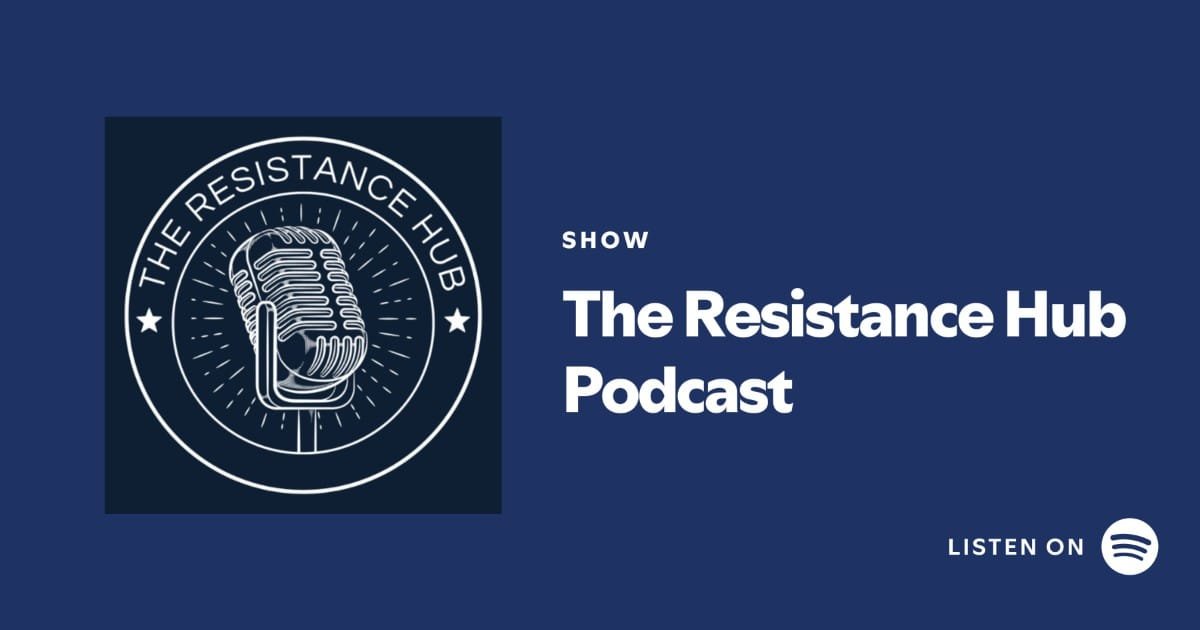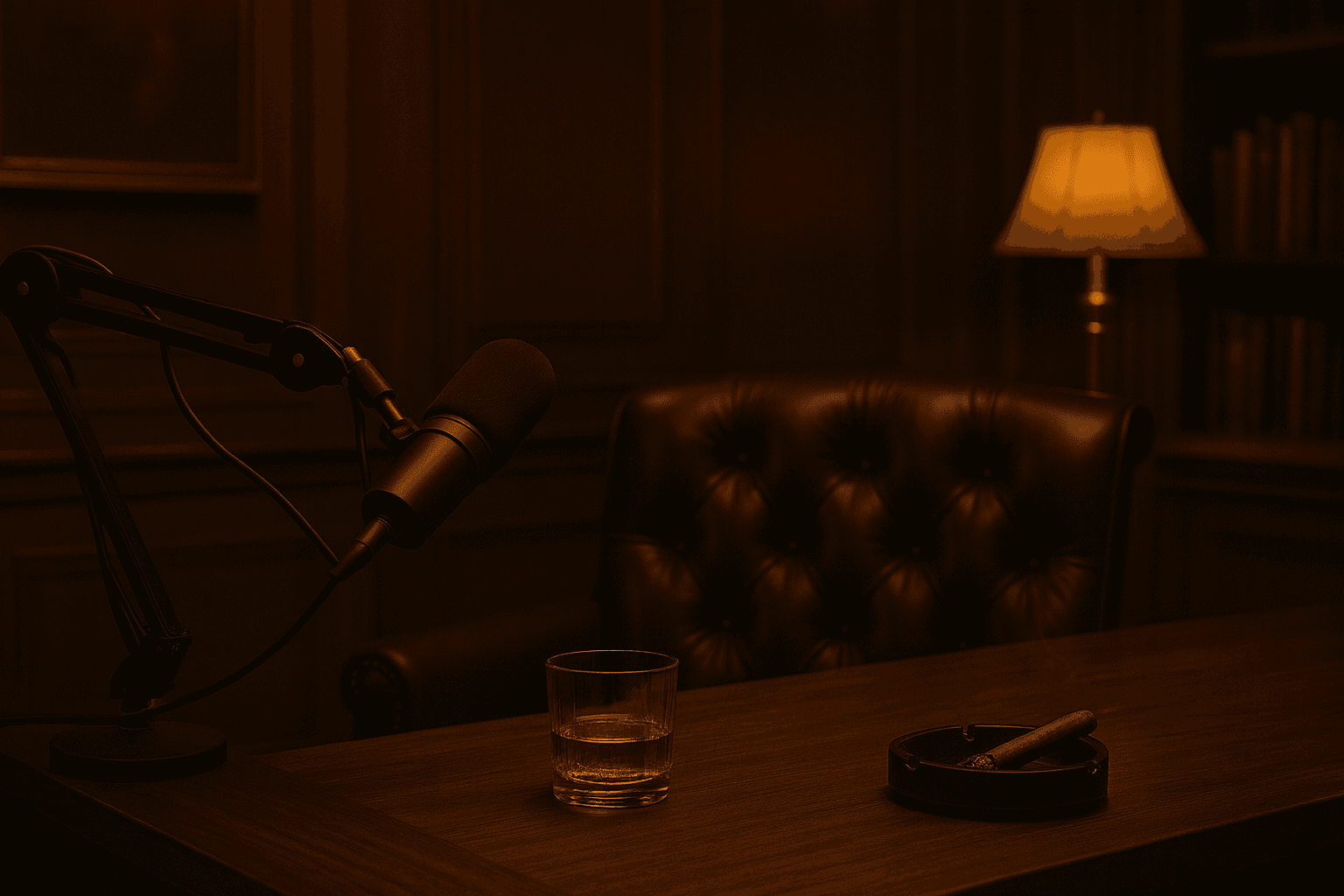We’re thrilled to announce the launch of The Resistance Hub Podcast, now available on Spotify. The release of this show is the next step in our mission to make the art and theory of resistance accessible to everyone. Too often, these conversations are by elites, for elites. While policy-facing content is important, our brand is designed for everyday people. We aim to help those who need to understand how these forces shape their lives.
From unpacking world events to exploring the mechanics of social movement theory, each episode delivers tactical insight, evaluates classical strategies, and presents alternative approaches to modern challenges. Whether you’re facing business risk, social upheaval, or increasingly oppressive environments, The Resistance Hub can break it down in simple terms.
Listen Now:
Why Spotify? Why Now?
Spotify is one of the most accessible podcast platforms in the world. It supports interactive tools like Q&A, polls, and episode chapters, and provides detailed analytics that help us refine our content. This platform allows us to connect directly with a global audience, without unnecessary gatekeeping.
By choosing Spotify, we ensure seamless distribution and real-time feedback from listeners. This also enables us to track what resonates, allowing us to sharpen our focus on the topics that matter most to you, not just policymakers or insiders. Its reach spans diverse regions and demographics, ensuring our work is available to those who need it most. The platform’s compatibility with multiple devices makes listening easy anywhere.
What You’ll Hear
The Resistance Hub takes a unique approach to podcasting. Instead of relying solely on live guests, the show leverages advanced AI hosts. This helps to keep production costs low and the content free for listeners. This technology allows us to focus on substance over spectacle. Consequently, we deliver consistent, high-quality episodes without paywalls.
Each episode draws from a curated mix of original articles, in-depth analysis, and essential public domain works. These form the backbone of understanding resistance, irregular warfare, and social movement theory. By blending contemporary reporting with timeless principles, we ensure every episode connects historical context to today’s realities.
You can expect:
- Curated Source Material – Insights distilled from The Resistance Hub’s own reporting, combined with historical and doctrinal texts. These remain relevant in modern contexts.
- Evaluated Classical Strategies – A breakdown of proven approaches from resistance history, adapted to today’s geopolitical and societal landscapes.
- Accessible Analysis – Complex concepts explained in plain language, making high-level theory understandable and actionable for a general audience.
- Interactive Features – Engage through Spotify’s polls and feedback tools to shape future topics and highlight areas of interest.
Listen & Stay Informed
You don’t need a subscription or paid account to listen — The Resistance Hub Podcast is free and available to everyone on Spotify.
New episodes release every Monday, giving you a consistent, reliable source of insight to start your week. Each episode blends historical perspective, current events, and essential resistance theory. This will help you see the bigger picture behind the headlines and understand how events connect across regions and time.
We also want your input. If there’s a topic, event, or historical case study you’d like us to explore, send us your suggestions. You can do this through Spotify’s built-in feedback tools or by contacting us directly. Your ideas help shape the conversations we deliver and ensure we address subjects important to you.

What to Expect in Our First Ten Episodes
Our launch lineup is designed to give listeners a deep, accessible foundation in the forces that shape modern resistance and irregular warfare. Each episode stands alone. However, they build toward a larger understanding of the tactics, strategies, and historical precedents that matter today.
We begin with “Much Ado About Drones”, exploring how unmanned systems are transforming both state and non-state operations. From there, “The Guerrilla Tactical Triad” breaks down the core field actions. It focuses on raid, ambush, and reconnaissance—essentials for understanding asymmetric engagements.
In “Mao Zedong’s Principles of People’s War”, we revisit a framework that influenced revolutionary movements for decades. This is followed by “The Desert and the Sword”, a dive into T.E. Lawrence’s unique approach to irregular campaigns. “Revolutionary Spirits” shifts focus to Che Guevara’s theory of guerrilla warfare. It separates the enduring lessons from ideological baggage.
Our mid-series episodes include “The OSS Simple Sabotage Manual Revisited”, translating World War II-era disruption tactics into modern relevance. We also explore “Why Politicized Militaries Like China’s and Russia’s Are Vulnerable to Irregular Warfare”. This episode analyzes structural weaknesses in authoritarian defense systems.
We then move into operational case studies. “Pipeline Wars” examines energy infrastructure sabotage. “A Tale of Two Campaigns” contrasts domain dominance and denial strategies. “From Protest to Resistance” follows Turkey’s May Day crackdown to explore how movements adapt under pressure.
Whether you’re starting with theory, historical examples, or present-day events, these first ten episodes create an interconnected foundation. Each links to supporting articles and source materials so you can go deeper.


